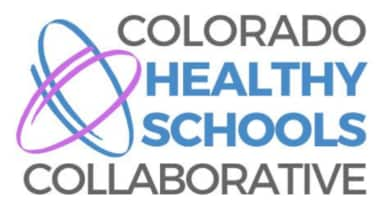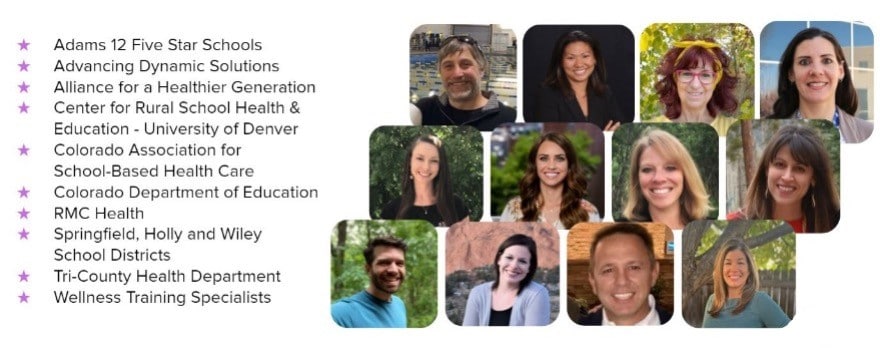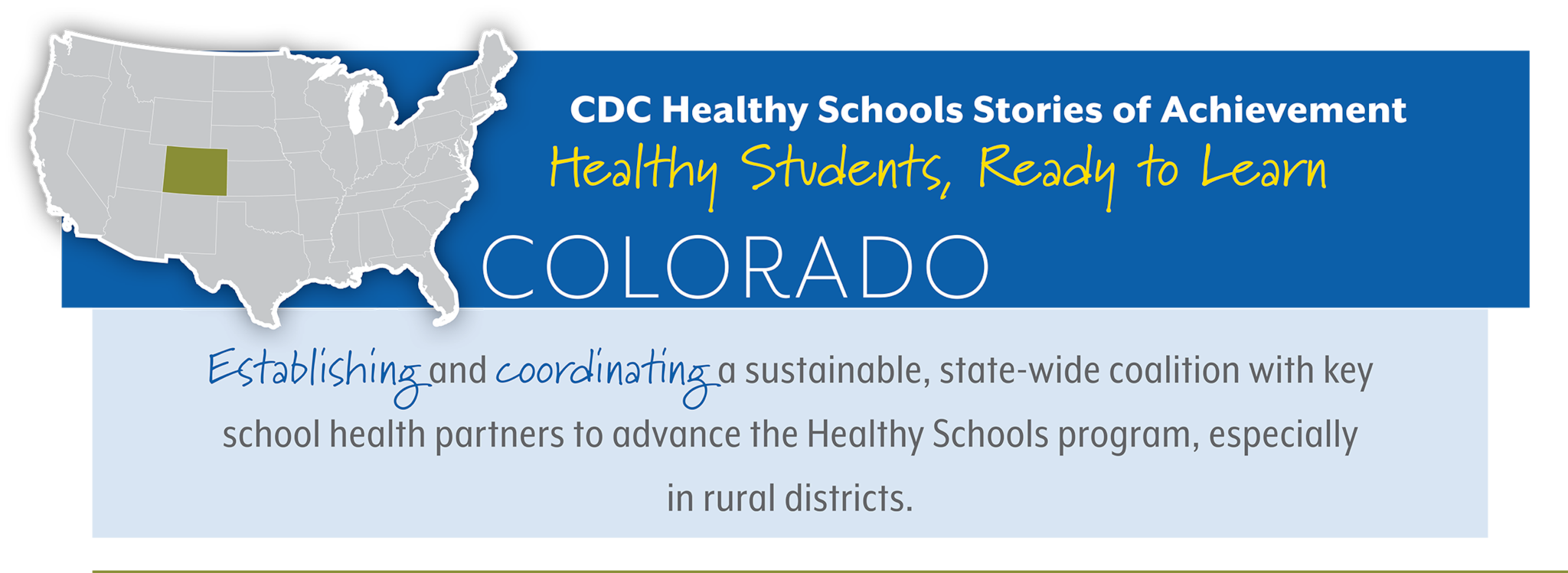Colorado
In the 2020–2021 school year, the Colorado Department of Education (CDE) started a networking and learning initiative called the Colorado Healthy Schools Collaborative (CHSC). This statewide health coalition, which evolved from Colorado’s previous infrastructure work, promotes and coordinates Colorado Healthy Schools’ efforts through policy, practices, and programs, and can potentially reach 590,000 students.

CHSC’s activities are coordinated by a 12-person multidisciplinary planning team representing 10 organizations, including school districts, state government agencies, non-profit organizations, local public health agencies, university partners, and school health care staff. The different experiences and perspectives of this diverse group have allowed CHSC to expand its impact to a Whole School, Whole Community, Whole Child approach statewide. The planning team has become a self-reliant, sustainable group that meets the needs of all audiences interested in school health.
With the aid of the planning team, CHSC developed and facilitated four quarterly virtual statewide health coalition meetings. Average attendance at each session was nearly 100 participants representing 52 districts and 48 partner organizations.

Post-meeting evaluation revealed that nearly all participants (98%) better understood how to meet objectives tied to topic areas such as:
- Responding to the evolving COVID-19 situation.
- Using transformative emotional intelligence strategies and skills.
- Using and sharing a variety of school resources.
- Creating inclusive school environments.
Most participants (88%) were very satisfied with the quality of the presentations and learning sessions provided at each CHSC.

One of CHSC’s current focuses is engaging and supporting rural districts. Out of 180 school districts in Colorado, over 75% of them are in rural areas. To support these districts, CHSC plans to identify new partners to help market the collaborative and will invite a new rural partner to speak at an upcoming meeting.
Ensuring meetings create an inclusive environment is another priority for CHSC. Among the four 2020–2021 meetings, nearly all (99.4%) participants strongly or somewhat agreed that the meetings met this goal. The meeting evaluation also showed that presenting information in Spanish and doing simultaneous interpretation back into English allowed participants to have a different experience and understanding with how interpretation works in virtual meetings and trainings.
CHSC’s activities will continue. Participants from across the state value the opportunity to connect, collaborate, and learn through this virtual environment. Virtual meetings also support sustainability because it limits costs associated with location, travel, food, and printed materials, and increases accessibility. In addition, The Healthy Schools Hub, an online platform for sharing resources and networking opportunities, greatly increased participation from rural communities and parts of the state outside of the Denver Metro area. As a next step, CHSC will offer at least two virtual meetings next year and one in-person meeting.

